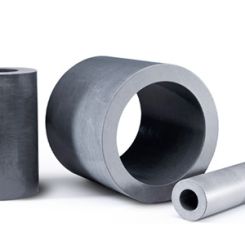
“I was taught to always stay humble and never assume I am the expert and that I must have a willingness to learn, more so from plant operators. Plant operators were indeed my first industry teachers and will remain thus.” Shyam Lakshmanan, 62, noted this as advice he learned from and when looking over his 41-year career, it is apparent he has taken every opportunity to continue educating himself on all aspects of the industry.

Lakshmanan started his education in chemical engineering at Toronto Metropolitan University (then known as Ryerson) and later completed the Engineering Council exams to qualify as a chartered electrical engineer. He also obtained a Master of Science in manufacturing systems engineering from the University of Warwick. Outside of school, Lakshmanan attended steam engineering training to qualify first as a 2nd grade steam engineer and later as a 1st grade steam engineer. He also studied and qualified as a registered electrical energy manager (REEM) and a registered energy manager (REM) and is currently seeking registration to conduct energy audits.
When asked what kind of training has helped him the most over his career, Lakshmanan said, “When I first started working, I was fortunate to be employed at a company that strove to keep improving their processes, consumption and efficiency. This mindset has stuck with me throughout my career, and I am proud that I have successfully instilled this mindset in my teams, wherever I have worked.”
Lakshmanan is currently general manager for IOI Edible Oils Sdn. Bhd. and general manager and director for IOI Bio-Energy Sdn. Bhd. He said the best part of his job “has been seeing my team members develop and eventually surpassing me at what they do.” He also noted that the hardest part of his job has been facing objections when it comes to challenging the status quo when trying to implement improvements, as well as getting people to adopt new technologies quicker. On what working in the industry has meant to him, he said, “It has given me recognition amongst my peers. They do check with me on related matters and often seek my input on various matters. [It] has provided a valuable venue for me to apply creative thinking skills in addressing problems and challenges, which often requires developing my lateral thinking skills too.”
What do you think younger engineers or operators need to learn to be prepared to take on these roles as others retire?
Young engineers and operators need to be humble and be willing to learn from others and must invest in continuous learning. Attend industry forums and exhibitions to keep updated and read relevant journals and articles. Also read on other topics too. That’s another way to get ideas!
What career advice can you offer?
While I had to struggle to get information during my early career (pre-internet days), today, information is feely available at our fingertips. I encourage young engineers to read and keep abreast of the latest technologies and developments in the industry.
What, in your opinion, are the biggest challenges that the industry is facing?
Global warming is a serious challenge but is where engineers can rise to the occasion and introduce more efficient processes and equipment. There is a need for engineers to introduce new ideas that will not only reduce carbon dioxide emissions, but that will also result in cost savings for their employers. That makes it a win-win solution.
How have things changed over the course of your career, in terms of technology and/or regulations?
We didn't have internet when I first started working. Today, we read journals online and can search for technical information and even use AI to get fast answers. AI can even draft out our letters and papers for us. We need to adapt and learn to use AI and these tools wisely.
Energy costs have rapidly risen, giving a greater push for selecting energy efficient equipment. Where I used to over design my pumps, I now tell my team to aim for efficient operation and compare the cost savings they can achieve by doing so. There has been a paradigm shift there.
Outside of the industry, what do you enjoy doing?
I read self-improvement and personal development books. I enjoy playing chess. And I have served as Adjunct Lecturer for a few years at local universities where I give lectures on practical purposes (such as pumps and heat exchangers) to chemical engineering undergraduates.

